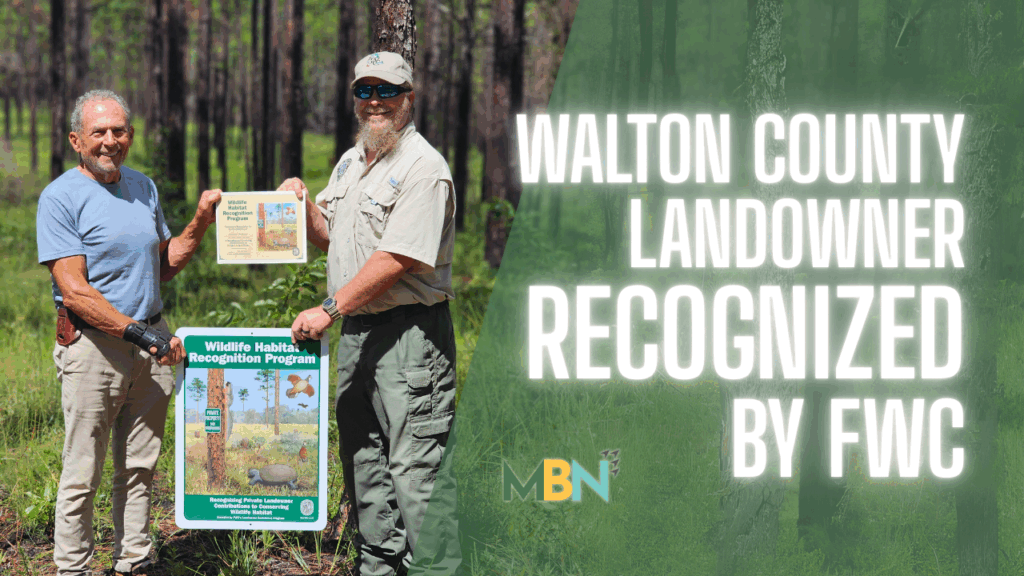
🌲 Michael Jenkins has spent more than 20 years restoring native habitat on his Walton County property, including planting longleaf pine and managing for wildlife.
🐢 His land is now a designated gopher tortoise recipient site and supports a range of native species.
🏅 The Florida Fish and Wildlife Conservation Commission recognized Jenkins through its Wildlife Habitat Recognition Program for his conservation efforts.
WALTON COUNTY — The Florida Fish and Wildlife Conservation Commission (FWC) has recognized Walton County resident Michael Jenkins for his long-term commitment to wildlife habitat management on his private property.
Jenkins, who first purchased the land in 1998, has transformed his property over more than two decades into a space designed to support native species like the gopher tortoise, white-tailed deer, and a range of pollinators. His efforts include reforesting land with longleaf pine, conducting prescribed burns, and planting native vegetation that provides food and shelter for wildlife.
FWC honored Jenkins through its Wildlife Habitat Recognition Program, which acknowledges private landowners for their voluntary conservation efforts. Recipients receive a certificate and a sign to display on their property.
Jenkins originally converted a 30-acre peanut field into loblolly pine in 2001, but later replaced it with longleaf pine, a species native to Florida. He planted additional fields with longleaf pine in 2005 and 2008. He has also incorporated fruit and nut-bearing hardwoods and flowering groundcovers to benefit pollinators.
In recent years, the property earned designation as an FWC-approved gopher tortoise recipient site, meaning it can legally receive tortoises relocated from areas undergoing development.
Jenkins has worked closely with the FWC, the Florida Forest Service, and the University of Florida to refine his habitat management practices. He said his goal is to convert the entire property into a wildlife-friendly landscape that future generations can sustain.
The FWC’s Landowner Assistance Program (LAP), which oversees the recognition initiative, provides landowners with technical guidance and management planning to improve habitat for wildlife. Property owners with at least 20 acres who are interested in the program can find more information at MyFWC.com/LAP.
According to FWC, private landowners play a critical role in connecting fragmented public conservation areas and providing corridors that many species rely on to survive. Without the participation of private landowners in conservation, some native plants and animals could face the risk of becoming threatened or endangered.
Register or login with Mid Bay News and never get another pop up on our site!